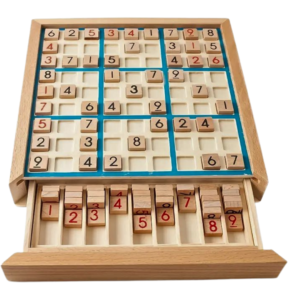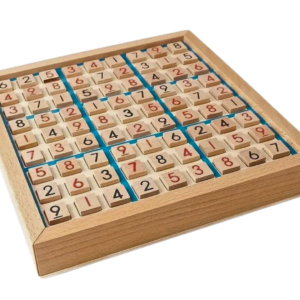Other Games
When it comes to gaming, most people immediately think of popular video games, sports, or classic board games like Monopoly or Chess. However, there’s a vast and exciting world of “other games” that offer unique experiences, challenge your mind, and bring joy to players of all ages. These lesser-known or niche games deserve attention for their creativity, strategic depth, and the fun they offer. Whether you’re looking to expand your collection, discover something new, or simply explore alternatives to traditional games, the world of “other games” is a treasure trove waiting to be explored.
What Are “Other Games”?
“Other games” refer to a broad category that includes any game falling outside mainstream categories like video games, sports, or globally popular board games. This can encompass puzzle games, abstract strategy games, cooperative games, and even traditional games from different cultures around the world. They often provide innovative ways to engage players, combining elements of strategy, creativity, luck, and problem-solving.
Here’s a look at some types of “other games” you may not have heard of but are definitely worth exploring.
1. Puzzle Games
Puzzle games challenge your brain and encourage critical thinking and problem-solving. These games often include logic puzzles, word games, and number puzzles. Popular examples include:
- Shut the Box: A traditional dice game that helps improve math skills and is perfect for family fun.
- Sudoku: A classic number puzzle game that sharpens logic and strategy.
- Tangrams: An ancient Chinese puzzle game where players form shapes using seven geometric pieces.
Puzzle games can be played solo or in groups, making them versatile and enjoyable for all ages.
2. Abstract Strategy Games
Abstract strategy games remove the element of chance, focusing purely on the players’ skill, strategy, and planning. These games are often simple in appearance but can offer deep tactical gameplay. Some examples of abstract games include:
- Blokus: A tile-laying game where players must place pieces on the board strategically to block opponents and expand their territory.
- Quoridor: A minimalist strategy game where players move their pawn across the board while placing barriers to block their opponents.
- Hive: A bug-themed strategy game where players use different insect pieces to surround the opposing player’s queen bee.
These games are great for those who enjoy mental challenges and strategic depth.
3. Cooperative Games
In cooperative games, players work together to achieve a common goal, fostering teamwork and communication. Rather than competing against each other, players must collaborate to overcome challenges. Examples include:
- Pandemic: A popular cooperative game where players work together to stop global outbreaks of diseases.
- Forbidden Island: Players cooperate to collect treasures and escape from a sinking island in this action-packed adventure game.
- Mysterium: A cooperative mystery game where one player takes the role of a ghost, and others work together to interpret visions and solve a murder.
Cooperative games are ideal for families and groups looking for shared experiences.
4. Traditional Games from Different Cultures
The world is full of traditional games that have been played for centuries, each offering a glimpse into the culture from which they originated. These games often rely on simple materials but involve complex strategies or social interactions. Some traditional games include:
- Mancala: An ancient African board game where players try to capture more stones than their opponent.
- Go: A Chinese strategy game with simple rules but incredibly deep and complex gameplay. Players compete to surround the most territory on the board.
- Carrom: A tabletop game popular in South Asia where players flick disks into pockets, similar to billiards.
Learning and playing traditional games is a fun way to connect with global cultures and explore different gaming experiences.
5. Dexterity and Party Games
Dexterity games focus on physical skill, hand-eye coordination, and quick reflexes, while party games are designed for large groups and focus on fun, laughter, and social interaction. These games are perfect for casual get-togethers and family nights. Some examples include:
- Jenga: A classic dexterity game where players take turns removing wooden blocks from a tower without causing it to collapse.
- Dobble (Spot It!): A fast-paced party game where players try to quickly match symbols on cards.
- Twister: A physical game where players place their hands and feet on colored circles, often leading to humorous and tangled positions.
These games are great for lighthearted, interactive fun and are perfect for players of all ages.
Why Play “Other Games”?
Exploring “other games” opens up a wide range of benefits beyond simple entertainment:
- Improved Cognitive Skills: Many of these games challenge your brain, improving skills like problem-solving, critical thinking, and strategic planning.
- Social Interaction: Games like cooperative and party games foster communication, teamwork, and bonding among players.
- Cultural Exploration: Traditional games from around the world provide a unique window into different cultures, allowing players to engage with history and traditions.
- Variety and Creativity: With so many different types of “other games” available, you’ll never run out of new and exciting experiences to try.
Conclusion
If you’re looking to expand your gaming horizons, the world of “other games” is rich with possibilities. From puzzle and abstract strategy games to cooperative experiences and traditional games from different cultures, there’s something for everyone. These games provide not only fun and entertainment but also opportunities to learn, think critically, and connect with others. So, why not add a few of these lesser-known gems to your game night lineup and discover a whole new world of play?













